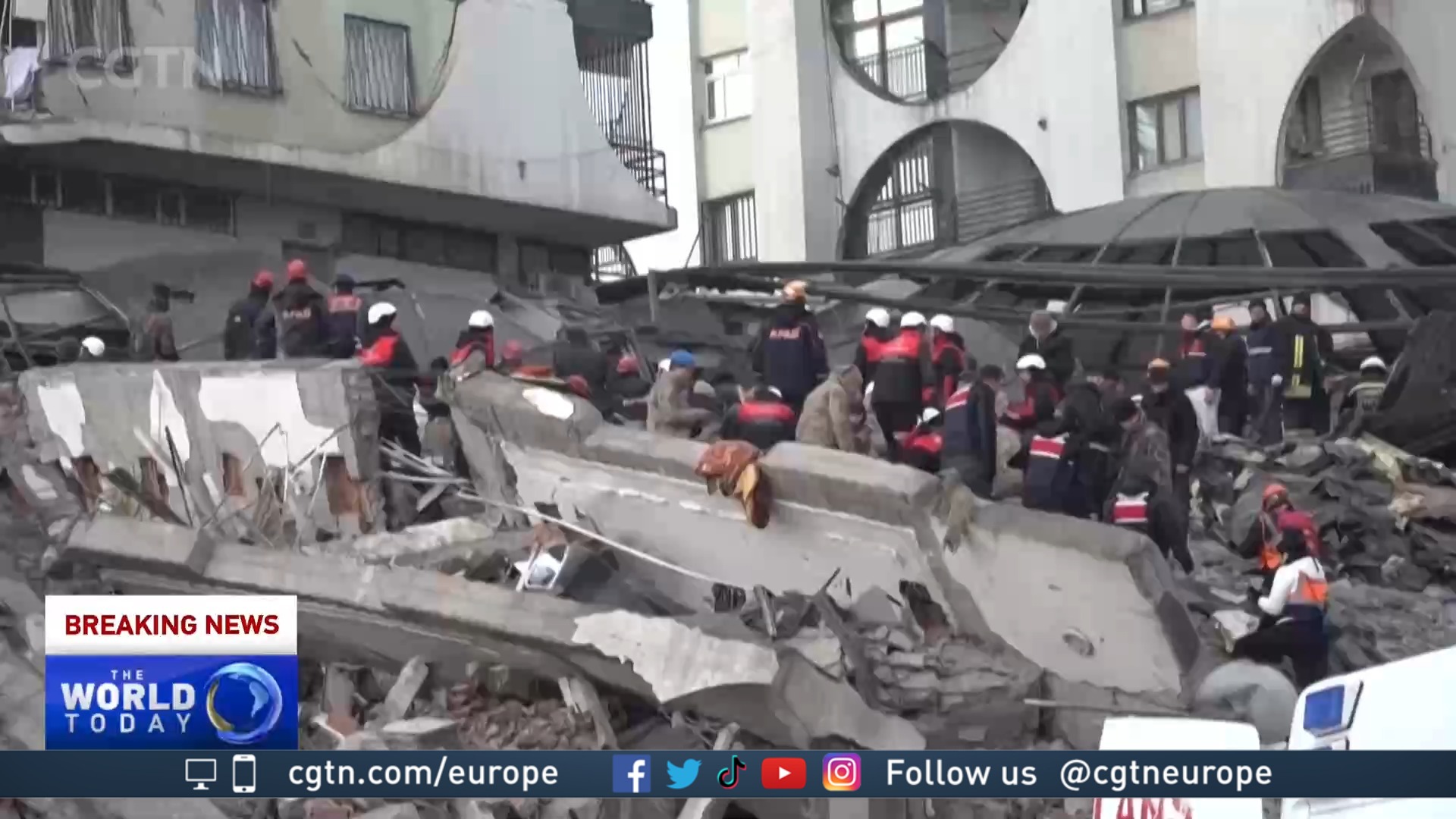
As survivors of one of the most deadly earthquakes in Türkiye's recent history take in the devastation, Louise Greenwood explains why so many have lost their lives./Aaref Watad/AFP
As survivors of one of the most deadly earthquakes in Türkiye's recent history take in the devastation, Louise Greenwood explains why so many have lost their lives./Aaref Watad/AFP
With central Anatolia sitting astride two active fault lines and squeezed by the Eurasian, Arabian/ African tectonic plates, Türkiye remains one of the most seismically unstable regions in the world. A third of the country is deemed at high risk from earthquakes.
The modern republican period has seen a series of deadly shocks that each time has left thousands dead and more destitute and homeless. Türkiye's President Recep Tayyip Erdogan has said this latest disaster could be the worst since 1939, when a quake in the eastern Erzincan region left 33,000 people dead.
Earthquake death tolls are often attributable to building collapses and, despite efforts to improve construction standards, Türkiye's housing stock is highly vulnerable.
In the 1950s, the development of the industrialized economy led to unprecedented levels of urbanization across Türkiye. By the seventies, demand for housing had led to whole neighborhoods of slum dwellings developing in major cities and elsewhere.
02:16

By the 1980s these were being replaced with mass high rise dwellings, many constructed with poor quality building materials that have proved unable to withstand shocks.
After a quake in the western city of Izmit in 1999 left 17,000 dead, investigations by Türkiye's Chamber of Commerce found 65 percent of all residential dwellings in the country had been constructed either without a permit or failed to meet building regulations.
In Istanbul, half the city's population was found to be living in illegal accommodation. In response a stringent package of regulations known as the "Earthquake Code" was made law. But with pressure on housing remaining high, enforcement has proved a challenge.
More recent factors, including the conflict in the Kurdish south east and the war in Syria, along with an economic crisis, are combining to limit the supply of new affordable housing.
As the Eurasian plate continues to inch northward, the fear is that a quake of the magnitude of the one just seen around Gaziantep could before long hit Istanbul, a city with a population of 16 million.